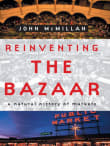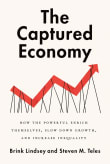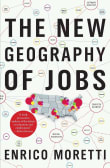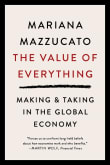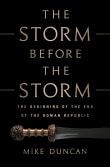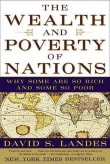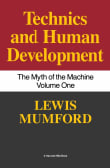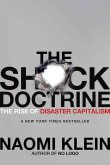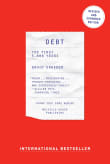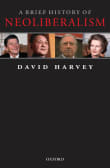The Great Transformation
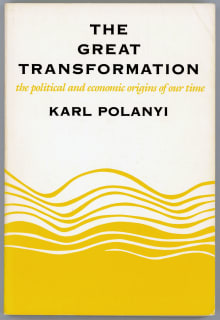
Book description
In this classic work of economic history and social theory, Karl Polanyi analyzes the economic and social changes brought about by the "great transformation" of the Industrial Revolution. His analysis explains not only the deficiencies of the self-regulating market, but the potentially dire social consequences of untempered market capitalism. New…
Why read it?
12 authors picked The Great Transformation as one of their favorite books. Why do they recommend it?

As post-Cold War globalisation seems to face its fate, I always go back to this book as it offers lessons on the perils of taking for granted economic rationality. The 19th-century liberal order crumbled, and fascism emerged as a solution. In the same vein, is far-right populism a reaction against the consequences of neoliberalism?
Although he does not bring to the centre stage the impact of ethnic-religious cleavages, such a shortcoming only made me wonder whether his riveting account of modernity applies nowadays.
From Vinícius' list on understanding the transformation of capitalism and globalisation.

The Great Transformation, in which Karl Polanyi explores “the political and economic origins of our time,” is arguably the most important history of the economy ever written.
Polanyi published his study during the dark times of the twentieth century in an attempt to trace the origins of modern fascism (a task that has lost none of its relevance in the twenty-first century). He located those origins in the industrial transformation of land, labor, and money – the foundations of social existence – into full-fledged commodities, that is to say, into ephemeral vehicles of profit.
The resulting market society, touted…
From Michael's list on modern capitalist economy.

Some critics argue that Polanyi got 19th-century English history wrong, but his argument that the capitalist economy is “disembedded” from the social system and is focused only on growth and more capital seems spot on.
The attempt to turn everything into a commodity will mean the wrack and ruin of the earth and its inhabitants. Not quite Polanyi’s words but, 80 years later, ever closer to what is happening.
From Ronnie's list on explaining how capitalism works.
If you love The Great Transformation...

This book looks at the relation between the market economy and society.
It challenges the conventional wisdom of classical liberal economics and sheds light on the root cause of many of the conflicts troubling the world today. Polanyi wrote this book during the Second World War as he tried to understand why Europe had descended into war yet again.
He found his answer in what he calls the “double movement” in which the outcomes of economic liberalism and self-regulating markets conflicted with a desire for social protection and the conservation of “man and nature” generating a political pushback in the…
From Elizabeth's list on why international finance fails to deliver.

I first encountered the idea that governments make markets when I read Polanyi as an undergraduate.
He challenges the foundations of economics by arguing that people are motivated by social standing more than by material wealth. And he introduces the concept of a “double movement” over time – a shift toward the self-regulating market followed by a turn toward social protection.
From Steven's list on how markets really work.

Polanyi’s book is a classic treatment of the relationship between economics (or the economy) and the legal and political frameworks that allow it to work. Historically informed and well documented, Polanyi makes the argument that market capitalism (without any intervention and regulation) not only does not work as smoothly as expected, but causes hardships for a great many participants.
From Raphael's list on moving beyond capitalism.
If you love Karl Polanyi...

An economic historian, Polanyi showed, in 1944, the logic of societies with limited markets, and how privatisation and commodification of land and labour took away local autonomy and led to increased inequality. Markets have always existed, but they have not always dominated everyday life as they do today. A non-Marxist socialist, Polanyi believed in collective solutions to shared problems rather than the fragmentation entailed by so-called free markets (which are actually anything but free).
From Thomas' list on economic anthropology.

This book showed me the way to alternative understandings of money, from one culture to another, over vast periods of time and space. An extraordinary read. Polanyi influenced a little-known school of economics, yet one that is becoming more and more relevant as our understanding of money is transformed by alt- and cryptocurrencies.
From Frederick's list on what money is, from beginning to Bitcoin.

This is an older book that doesn’t address neoliberalism directly, but it has been really important for people who are trying to think about how to get past neoliberalism. Polanyi shows that the free market is not some spontaneous, “natural” thing, but requires massive state action and support. He also shows how destructive market forces can be to society if left unchecked and argues that the state’s duty is to find ways to constrain the market’s worst impulses.
From Adam's list on understanding neoliberalism.
If you love The Great Transformation...

In this classical work, the economic historian Karl Polanyi explores the dialectics between the commodification of nature and the human workforce on the one hand and the reactions of society on the other, dynamics which eventually led into the abyss of nationalism, fascism, and the two world wars. Polanyi points out that labor markets have not emerged in a quasi-natural manner, but were manufactured by state violence, as in the case of the British New Poor Law in the 19th century, a law that threatened workers with starvation in order to force them to accept wage labor even under…
From Fabian's list on capitalism and the crisis of life on earth.
If you love The Great Transformation...
Want books like The Great Transformation?
Our community of 12,000+ authors has personally recommended 100 books like The Great Transformation.



